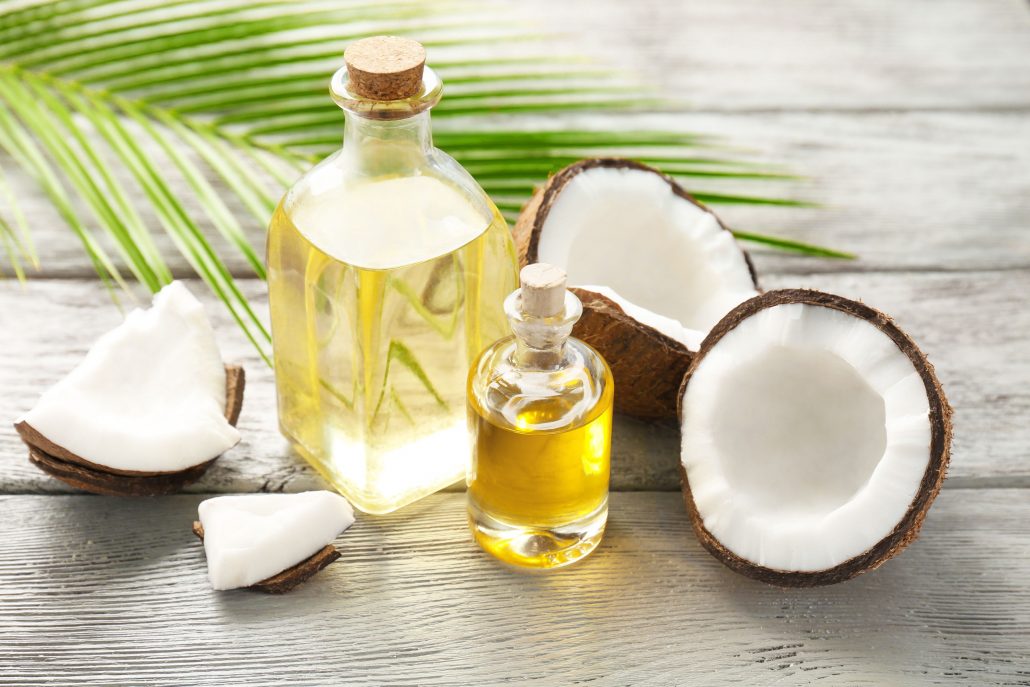Get instant access to cutting edge Nutrition, Fitness and Health tips and YES even Healthy Recipes.

A perfect example of a healthy food that is being unfairly demonized is the recommendation by the (AHA) to avoid using coconut oil and replace it with pro-inflammatory, industrialized seed oils.
The American Heart Association (AHA) recently issued a “presidential advisory” stating that saturated fats, including coconut oil, should be avoided, recommending that they be replaced with polyunsaturated fats like canola oil, soybean oil, and corn oil. (1)
While this has been all over the news, the report is certainly nothing new. In fact, the AHA has consistently recommended the outdated advice of reducing saturated fat in our diet since 1961, sighting it as the main risk factor of cardiovascular disease. (2, 3)
However, new studies confirmed that saturated fat is NOT the evil that it’s being professed as. In fact, there’s no sound, scientific correlation between saturated fat and heart disease, therefore making it one of the healthiest fats to cook with. (4, 5)
Although coconut oil is one of the richest sources of saturated fat you can find, sporting over 90 percent of its calories from saturated fat, the initial studies on coconut oil that supposedly demonstrated that it was unhealthy were done using refined and hydrogenated coconut oil that contained Trans-fats.
Therefore, these studies have absolutely “no relevance” to the health benefits or lack thereof of unrefined, organic, virgin coconut oil that is commonly found in markets and health food stores today.
If coconut fat were bad for you, then we should see some very sick people in populations that eat a large percentage of their diet from it. However, Inhabitants who eat a large percentage of calories from coconuts are by far healthier than our Western culture.
For instance, the Tokelauans who reside in a New Zealand territory in the southern Pacific Ocean eat more than 50 percent of calories as coconut and are the biggest consumers of saturated fat in the world. Similarly, the Kitavans from the Province of southeastern Papua New Guinea eat up to 17 percent of calories as saturated fat, mostly from coconut. (6, 7)
However, both of these populations have no traces of cardiovascular disease despite their high saturated fat consumption and their overall health is quite exceptional. (8, 9)
Coconut oil is very different from most other cooking oils. Its unique composition of fatty acids is about 93 percent saturated, respectively, which makes coconut oil highly resistant to oxidation at high heats.
For this reason, coconut oil is the perfect oil for high-heat cooking methods such as frying. (10)
Additionally, coconut oil consists almost entirely of Medium Chain Triglycerides (MCT’s). These fatty acids go straight from the digestive tract to the liver, where they are easily converted into ketone bodies, providing a quick and efficient source of energy for the body. (11)
The most abundant fatty acid in coconut oil is the 12-carbon Lauric Acid, which gets broken down into a compound called monolaurin in the body.
Lauric acid and monolaurin are both very interesting due to the fact that they can kill disease causing microorganisms, such as bacteria, fungi, and viruses.
Unrefined coconut oil actually improves blood lipid profiles.
In two separate studies, virgin coconut oil was compared against copra oil (refined coconut oil) and corn oil.
Not only did the virgin coconut oil significantly reduced Total and LDL cholesterol, oxidized LDL, triglycerides and increased HDL (the good) cholesterol, but also had favorable effects on blood coagulation factors and antioxidant status. (15, 16)
In another study of women with abdominal obesity, coconut oil increased HDL and lowered the LDL/HDL ratio, while soybean oil increased Total and LDL cholesterol and decreased HDL. (17)
Medium chain triglycerides (the fats in coconut oil) have also been shown to reduce blood triglycerides. (18)
There is considerable evidence that coconut oil can help you lose weight. In a study of 40 women with abdominal obesity, coconut oil helped reduce waist circumference, while also improving blood biomarkers. (19)
Medium chain triglycerides have also been consistently shown to promote weight loss in both animal and human studies:
In addition to coconut oils many health benefits, including its therapeutic properties, it’s also helpful for weight loss, a clean and efficient source of energy for the body and tastes awesome with almost any food.

Get instant access to cutting edge Nutrition, Fitness and Health tips and YES even Healthy Recipes.
